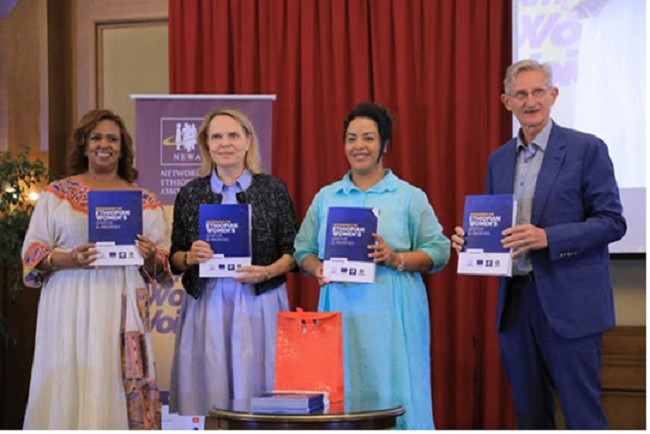Filling the Gap in Data on Women’s Status in Ethiopia

Introduction:
|
The main objective of the EU-financed project ‘Determining Ethiopian Women's Status and Priorities’ is to generate evidence for effective response and broader gender equality concerns during and after crisis in Ethiopia in the most comprehen sive and detailed report on the situation of women ever done in the country. In October 2024 Ethiopian Women’s Status and Priorities Report was published, as a result of over a year of qualitative and quantitative research in over 36,000 households in all regions of the country. Objectives:The 'Determining Ethiopian Women's Status and Priorities: an Action Research Project’ NDICI HR INTPA/2022/438-830 is a project funded 100% by the EU. It started implementation in January 2023 and ran until October 2024. The project was implemented by the Network of Ethiopian Women's Associations (NEWA) and OXFAM International. The project was designed to achieve the overall objective of contributing to gender equality and women empowerment efforts during and post- crisis situation in Ethiopia. The overall design was made to achieve two overarching outcomes: 1) to generate evidence for effective response and broader gender equality concern during and after crisis in Ethiopia, and 2) to promote research and advocacy capacity of women associations and structures. There were several surveys and administrative information in Ethiopia available that shed light on the state of gender equality and women’s empowerment in the country. These gender data initiatives describe the status of women’s empowerment on major dimensions such as education, health, economic resources, power and decision-making. While these are useful gender statistics that help to grasp gender equality gaps, most of these works are quantitative in nature resulting in the voices of women from communities rarely being included. In addition, the studies are representative only at national and regional level; zonal and woreda level representative data is rarely found. Almost all the data were collected in a period when Ethiopia was enjoying relative peace, most of them before 2017. There have not been comprehensive initiatives that use mixed research methods to assess women’s empowerment status and their priorities prior to the EU funded report. Project Activities:
Results:
|





